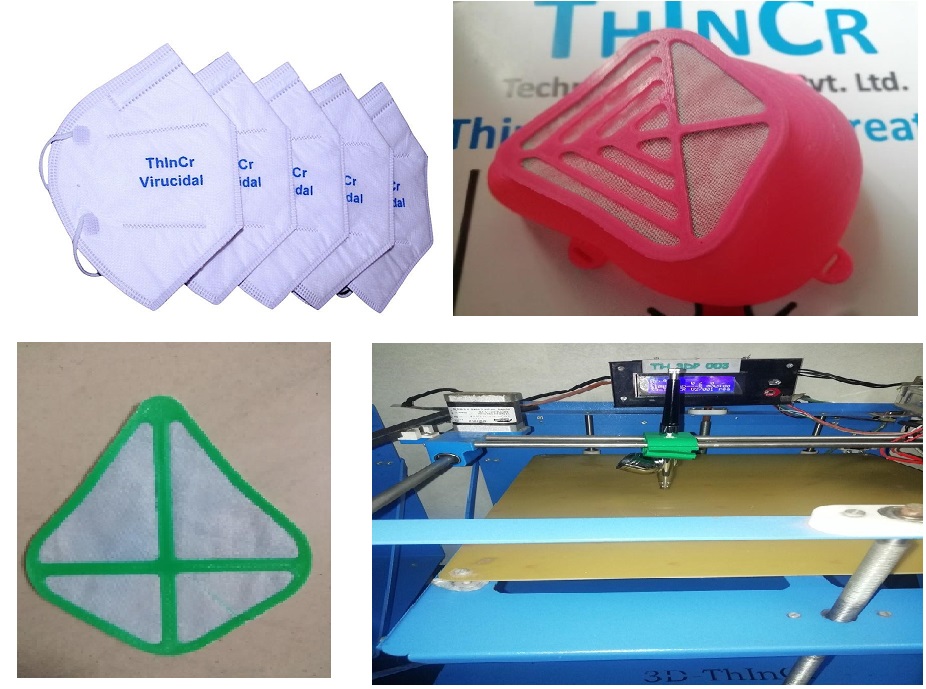3D-printed Masks Coated with Anti-Viral Agent
- An integration of 3D printing and pharmaceuticals has resulted in a novel type of mask which attacks the virus when viral particles come in contact with it.
- Developed by Pune-based start-up firm Thincr Technologies India Private Limited, these masks are coated with anti-viral agents known otherwise as virucides.
-
It was developed with support from Merck Life Sciences located in Nerul, whose research facility was used for the purpose.
-
For the first time, in this project, a 3D printer was used to fabricate multilayer cloth filters to precisely fit plastic-mold or 3D-printed mask covers.
-
The coating formulation has been utilized to coat the fabric layer and the 3D printing principle was employed to achieve uniformity of coating.
-
The coated layer can be incorporated as an additional layer in N-95 masks, 3-Ply masks, simple cloth masks, 3D printed or other plastic cover masks, along with reusable filters.
-
These masks thus provide additional protection beyond the protection achieved by filtration mechanisms.
-
The coating has been tested and shown to inactivate the SARS-COV-2 virus.
-
The material used for coating on the mask is a Sodium Olefin Sulfonate-based mixture.
-
It is a soap forming agent with hydrophilic and hydrophobic properties.
-
In contact with enveloped viruses, it disrupts the outer membrane of the virus.
-
The ingredients used are stable at room temperature and are widely used in cosmetics.
-
The masks have been found to have bacterial filtration efficiency higher than 95%.


